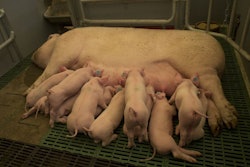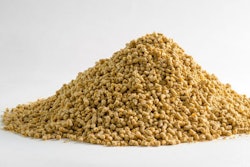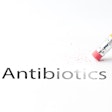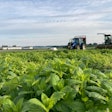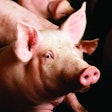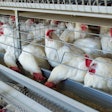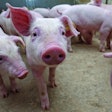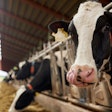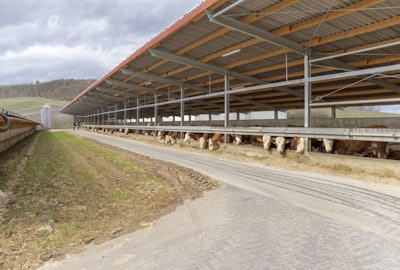
Australian company is turning investors’ heads with its proposed line of feed additives to reduce emissions
Feed additives like seaweed and essential oils show promise in reducing methane emissions from livestock, but how do you get a species like cows or sheep to benefit when they’re grazing the range? An Australian startup believes it may have a solution.
West Australian company Rumin8 last month received a AUD7 million (US$4.9 million) infusion from multiple climate impact funds, including U.S.-based Prelude Ventures and from Australian-based Sentient Impact Group. The private fundraising comes after the award of a AUD650,000 grant from the Australian government’s Entrepreneurs Program, which Rumin8 received late last year.
In a statement, Prelude Ventures’ managing director Mark Cupta indicated that the potential scalability of Rumin8’s products drew its attention to the company.
“The global beef industry is huge, and so is its environmental impact,” Cupta said. “Rumin8 possess a technology that can move the dial in terms of efficacy at an individual animal level and scalability at a global herd level, generating impactful benefits for the environment and a return on investment for shareholders.”
Rumin8’s products take after asparagopsis, the red seaweed that has drawn attention for its ability to significantly reduce emissions from ruminant digestion. But while the results are promising, asparagopsis isn’t particularly user-friendly, according to Rumin8 managing director David Messina.
“We did a lot of work on asparagopsis and realized there were going to be some challenges with scalability and cost,” Messina said. The plant’s natural capacity to reduce enteric emissions varies significantly depending on how and where it is grown, and for cattle raised on rangeland, integrating asparagopsis into the diet proved challenging.
But while Messina has an agricultural background, his cofounders come from the pharmaceutical sector. Using their experience, Messina said, they have been able to replicate the bioactive compounds found in asparagopsis in a laboratory, creating a more uniform product. They’re now working to integrate the compound into a variety of products, including an oil-based additive that can be applied to pellets in a feed lot, a water soluble solution for delivery in drinking water and, more long term, a low-release product that could provide extended benefits with a single dose.
The company’s tests of its products have yielded promising results so far, with emissions reductions as high as 95% in some cases, Messina said. On top of this, some animals — particularly those raised in harsh, arid environments — may benefit from improved feed efficiency when taking the supplements.
“With harsh grazing environments, where the ruminant has to do a lot more work to break down that high cellulose diet, they are producing more methane,” Messina said. These animals appear to benefit from greater feed efficiency gains when the additives divert energy away from the production of methane.
Rumin8 products are still undergoing field tests, but Messina said they anticipate some of their products could enter the market in Australia within the next year. Sales to markets such as the EU could begin in the next 2-3 years, Messina said, but he expected their products would not be available in the U.S. for at least five years due to the extended approval process for new feed additives.



